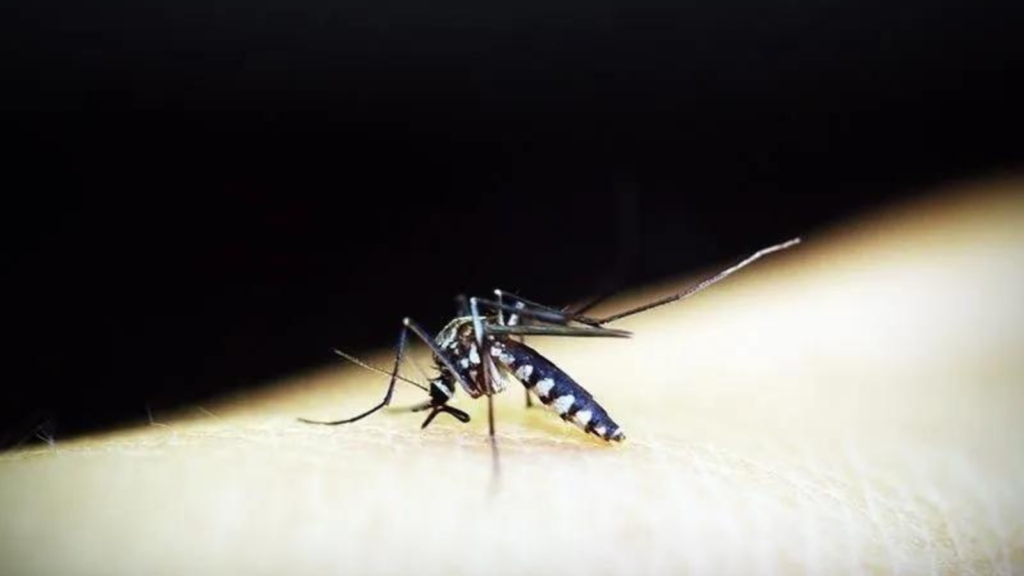Climate change continues to pose an existential threat to the lives and livelihood of those within St. Kitts and Nevis and the wider Caribbean region, as attention is now being placed on the vulnerable elderly population.
Climate officials often focus on the real-world impact of the challenges associated with storms and natural disasters, but the elderly communities are often overlooked until a major problem develops.
With the world registering the hottest July and August on record, and the second warmest September, this has thrust concerns about the impact of climate change on the health and wellbeing of seniors within the region.
From the lack of water through droughts to increases of mosquito-borne ailments, there are many threats being faced by the elderly communities. But daily health-related issues such as hypertension, diabetes, and asthma could be worsened by the hot conditions.
Medical challenges and climate change
Former Executive Director of the Caribbean Public Health Agency (CARPHA) and now CEO and EarthMedic and EarthNurse Foundation for Planetary Health, Dr. James Hospedales noted that a number of health-related issues are impacting the vulnerable communities, including the unintended consequences of medications.
During his interview with Climate Tracker, Hospedales explained that not everyone will be affected the same by rising temperatures, but the elderly, young children, pregnant women and those with chronic diseases (hypertension and diabetes) are at the top of the list.
The use of medications will also compound the challenges posed by the hot weather.
“Some of the earlier generation of Antihistamines like Benadryl, they make you unable to realise how hot it is,” Dr Hospedalis said. “Your body may not sweat properly and will heat up, and you are more at risk of heat illness.”
Drugs like Diuretics, which is often taken for hypertension and forces the release of water, raises the risk of dehydration when faced with hot conditions, along with “Certain medications for mental health treatment, depression, schizophrenia …make you unaware that your body is heating up, and you are not sweating properly”, Dr. Hospedales noted.
Climatologists have argued that rising temperatures will be the new normal across the region, with the latest forecast pinpointing that the Caribbean region will see warm conditions during the expected cold/rainy Christmas season and well into the new year.
In some territories, there were consistent feel-like temperatures well above 100 degrees, which develop rashes and other types of ailments for those within the respective areas.
According to Dr. Hospedales, because many of the older adults have chronic diseases they are unable to properly handle the challenges with the diseases, creating an urgent need for medical practitioners and governments to include them in the discussions of climate change.
St. Kitts and Nevis’ Chief Medical Officer Dr Hazel Laws recently called on the public to look out for elderly citizens during the hot months. She outlined that keeping them hydrated and out of the sun for prolonged periods would be two ways to ensure that they are protected. But the problem is not just limited to day time temperatures but also in the evening hours.

Too many biting insects…
But just as the discussion surrounding climate change focuses on the rising temperatures, there is a concern about the heat and rainy conditions giving rise to mosquito-borne diseases across the region, which is being overlooked
Across the region, Jamaica, St. Kitts and Nevis, Barbados, St. Vincent and the Grenadines, and the Dominican Republic have all reported new or increased cases of Dengue in recent weeks.
According to the American-based Center for Disease Control (CDC), Dengue causes high fever, headache, body aches, nausea and rash. Though it has been in the region for some time, there has been an uptick in the cases, with St. Kitts and Nevis recorded three new laboratory confirmed cases.
“Increase in rainfall is often associated with an increase in mosquito vector levels and an increase in risk of spread of mosquito related diseases such as Dengue, Zika and Chikungunya. The Caribbean Public Health Agency (CARPHA) has reported an upsurge in laboratory confirmed cases of Dengue in the region and Dengue outbreaks have been reported in three CARPHA member states,” the Ministry of Health in St. Kitts and Nevis said in a media statement.
The medical practitioner recommends that more attention be placed on making simple changes that can reduce the amount of heat in buildings. He pointed to using more painting school roofs white to reflect the sun’s rays, use heat reflective paint, education of business owners and the public at large on solutions,
“The greening and adaptation of the business is a big business opportunity if a big businessman or woman,” noted Hospedalis.
He called for more trees to be planted to provide a cooling effect for those people who are consistent with outdoor activities.
With increased temperature becoming the new normal for the region, the practical examples of dealing with the issue and having the elderly population to adapt continues to be a challenge for governments because the temperature is expected to get hotter every year – which then needs a change of strategy.
“That will threaten people’s lives and threaten people’s livelihood,” conceded Hospedalis.
Statistics are not readily available on the number of people who are suspected of being impacted or would have died from the recent wave in the Caribbean region, but the former executive director believes that there could be deaths not attributed to climate change resulting from the rising temperatures.
This story was published on Sknvibes with the support of the Caribbean Climate Justice Journalism Fellowship, which is a joint venture between Climate Tracker and Open Society Foundations.